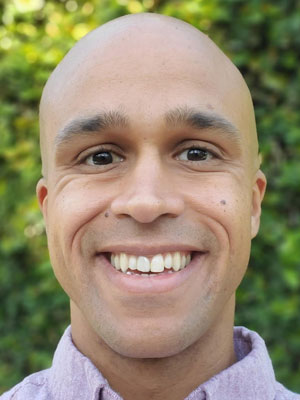Meet our new faculty: Sean Darling-Hammond

- Disciplines: Health and Social Behavior and Community Health Sciences
- Research interests: Racism, belonging, school discipline, school police, restorative practices
- Hometown: I grew up in Washington DC, New Rochelle, NY, and Palo Alto, CA
- Current City: Emeryville
- Hobbies: Family time with my wife and two boys, rock climbing, Brazilian jiu-jitsu, and chess
In July 2024, Berkeley Public Health welcomed assistant professor of Health and Social Behavior and Community Health Sciences Sean Darling-Hammond. Dr. Darling-Hammond received a PhD in public policy from UC Berkeley’s Goldman School in 2022; a JD from UC Berkeley in 2014; and a BA in sociology from Harvard in 2006. We asked him about his work and hopes for the coming academic year.
Where did you live and work before joining the UC Berkeley School of Public Health?
My wife and I have lived in Oakland and Emeryville since I began my PhD in 2017.
Can you tell us about your work while at the Goldman School, specifically your dissertation, Fostering Belonging, Transforming Schools: The Impact of Restorative Practices?
Across the country, many schools have adopted restorative practices in an effort to improve school climate and student outcomes while reducing exclusionary discipline. Restorative practices are designed to proactively build community, improve relationships, and help students amend harm when conflict occurs.
Using six years of student survey data and California administrative data, my study examined the use of restorative practices in 485 middle schools and their impact on school and student outcomes. Analyses find that exposure to restorative practices improves students’ academic achievement and reduces suspension rates and disparities. Schools that increased use of restorative practices saw a decrease in schoolwide misbehavior, substance abuse, and student mental health challenges, as well as improved school climate and student achievement. Students of all racial and ethnic backgrounds benefited from restorative practice exposure, with Black and Latino/a students benefiting the most.
I’m currently working on K-12 policies and practices that can enhance mental health and wellbeing for minoritized youth.
What are your hopes for starting your new position at Berkeley Public Health?
To be an active member of this vibrant community; to conduct and collaborate on incisive, interdisciplinary research; and to empower and inspire the next generation of health equity scholars and change-makers.